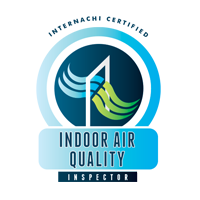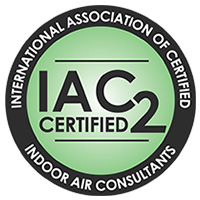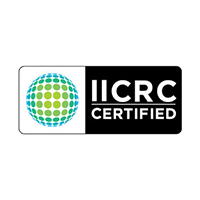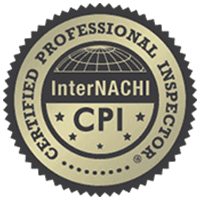Indoor air quality testing in Kingston
Air quality testing in Kingston is a service that provides accurate testing for the quality of the air in the home or office.
This service is designed to help people find out if their home or office is safe for them to be in.
Call up one of our Air quality specialists from our Kingston air quality testing company today! We’re your local experts, protecting your loved ones with our air quality testing products and services for more than two decades around Kingston, ON.
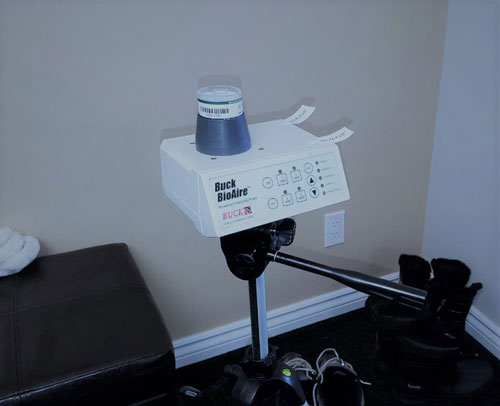
Why choose us?
Experience. Committed to serving Kingston with environmental services for over 10 years.
Speed. You will receive results and advice information as detailed and as fast as it gets here, so you can get the help you need.
Value. Affordable expenses for a quality repair. Many hidden damages are found before any home or property renovation plans are made.
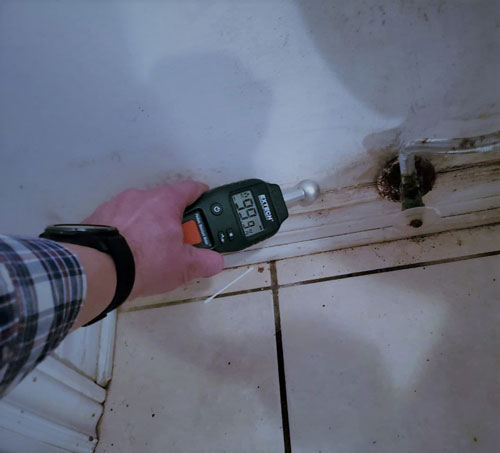
Precision. Our experts utilize state-of-the-art technologies and instruments at our company to provide our clients with the most accurate data set possible.
Trusted. We’re highly recommended by remediation providers and homeowners, so our methods have been accepted as an approach to correcting air quality needs by various diverse fields.
Personalized. We take tremendous pride in maintaining the highest possible standards in customer service, timeliness, and quality at the side of reliability.
What is the air quality in Kingston?
The air quality in Kingston is measured by its Air Quality Index (AQI). The AQI, which was created by the United States Environmental Protection Agency (EPA), measures the daily concentrations of pollutants in the air. These concentrations are measured against a scale of 0 to 50.
The air quality in Kingston is not nearly as bad as in places with a lot of heavy industry. In the morning, the air is composed mainly of carbon dioxide, oxygen and nitrogen compounds from plants, and some ozone from solar radiation. In the afternoon, particulate matter from industry and automobiles increases the concentration of gases such as sulfur dioxide and nitrogen oxides.
Places with clean and fresh air in Kingston
There are a few places in Kingston with clean and fresh air:
- The first place is inside the Cataraqui Cemetery.
- The second place is along the waterfront near Springer Market Square.
- The third place is in Kingston Mills.
- The fourth place is at Fort Henry.
- And the fifth place is in GreenWood Cemetery.
What do we test air for?
Mold. In order to ascertain the level of mold in a particular environment, it is necessary to conduct air quality tests. This can be done by taking samples from various areas in the home and having them analyzed for the presence of allergens such as hyphal fragments or spores. The levels of these substances in a given environment correlate with the severity of the mold infestation.
Asbestos. Asbestos is a mineral fiber that can be found in many building materials. It was once a commonly used insulator and its use has been on the rise again recently, but it is now known that breathing asbestos fibers can lead to respiratory issues such as asbestosis, lung cancer and mesothelioma.
Particulate Matter. Particulate matter is a broad term that focuses on the particulate that are in the air. Particulates are an indicator for many factors that can affect health- key elements being odor, smoke, dust, and soot. These particles can be small enough to reach deep into the lungs of humans where they can cause severe lung problems like asthma or aggravate existing lung conditions like bronchitis.
Formaldehyde. Indoor air quality testing for Formaldehyde is a common practice in homes and commercial buildings. Formaldehyde is a colorless, strong-smelling gas that can be present in building materials such as adhesives, sealants and certain insulation products. Testing can be done in order to identify possible sources of formaldehyde and to assess the potential hazard it may pose in the building.
Carbon Monoxide. Carbon monoxide is an invisible, odorless gas that causes headaches and shortness of breath when inhaled in large amounts. Carbon monoxide testing is done to track the air quality for sources of CO. The recommended norm for CO ranges from 0-9 ppm at all times. CO levels higher than the standard are often found in industrial settings, inside garages or under hoods of cars with engines running during repair work.
Volatile Organic Compounds. Volatile organic compounds (VOCs) are gases emitted from certain solids and liquids, such as paints and glues. They can produce a range of effects, including eye and lung irritation, headaches, skin rash, nausea and vomiting. VOCs also contribute to smog and acid rain. The US Environmental Protection Agency (EPA) is responsible for establishing air quality standards that protect human health and the environment.
Reviews by Our Customers in Kingston
FAQ
The cost of an air quality test service can vary depending on a few factors. The type of equipment used, the location of the testing, and whether any additional tests are included in the fee, such as mold or chemical screenings, all affect the final cost per unit.
The cost-effectiveness of air quality tests depends on several factors, such as the size and layout of your house. For those with pets, the presence of animals will often trigger false positives from CO2 detectors. In smaller homes, it may be unnecessary to test for mold and other substances, but in larger dwellings air quality should be inspected and monitored regularly.
Home testing for air quality is not as accurate as professional testing, but it’s simple to do. For example, you could buy a DIY carbon monoxide detector at your local hardware store, or buy an indoor air quality monitor online. Simply set up the detector or monitor in your home to measure levels of pollutants.
The accuracy of home air quality tests is dependent on the device being used to conduct the test, as well as the person conducting the test. The accuracy is also dependent on a number of factors including humidity, temperature, and air pressure. If a home air quality test is conducted in an unconditioned environment or if it was not performed correctly then it can lead to false results.
The symptoms of bad air quality in the home are often lacking fresh air, consistent dust, pet dander, allergens, and odors. The first sign of poor air quality is usually sneezing or coughing. Allergic reactions can also occur with exposure to pollen or dust mites. Asthma attacks may happen when exposure to allergens occurs for someone who suffers from asthma.
Service Areas
- Inverary
- Battersea
- Brewers Mills
- Pittsburgh
- Burnt Hills
- Brewers Mills
- Milburn
- Sunbury
- Ida Hill
- Latimer
- Davidsons Beach
- Railton
- Murvale
- Cataraqui Westbrook
- Cataraqui North
- Rideau Heights
Our certifications
